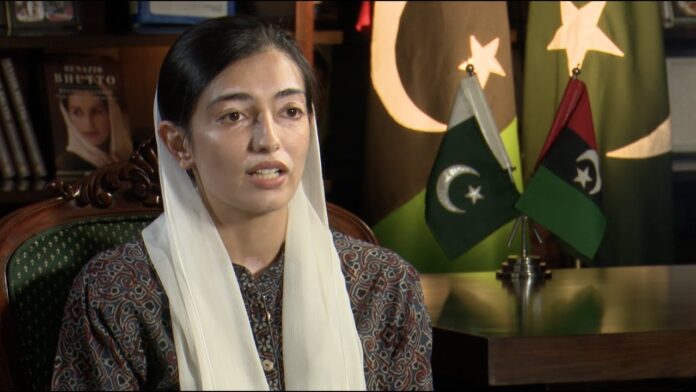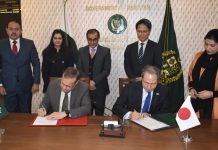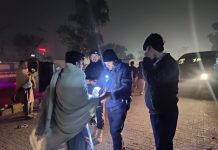Staff Report
ISLAMABAD: First Lady Bibi Aseefa Bhutto Zardari on Wednesday highlighted the alarming rise of breast cancer cases in Pakistan, urging the nation to prioritize early detection and awareness.
In her video message at the start of Breast Cancer Awareness Month, the first lady revealed that over 90,000 women in Pakistan were diagnosed with breast cancer every year, with more than 40,000 losing their lives to the disease due to late diagnosis and lack of timely treatment.
“Most breast cancer cases in Pakistan are detected at a later stage, which significantly reduces the chances of survival,” she said adding that with timely diagnosis and proper treatment, the survival rate can exceed 90%.
She emphasized the importance of regular screenings and encouraged women to perform simple self-examinations as a powerful tool for early detection. “A simple method of self-examination and screening can save thousands of lives,” she added.
Calling for a collective effort, the first lady urged women to break the silence around the disease and take proactive steps for their health. “Value your health, break the silence, spread awareness,” she said.
“Together, we can save lives and build a healthy and strong Pakistan,” she concluded.
Earrlier last month,
A study has revealed that imported chemotherapy drugs used to treat cancer, particularly breast cancer in Pakistan, have been found ineffective in most cases. This claim is based on scientific research conducted at the Jamilur Rahman Centre for Genomic Research at the University of Karachi.
According to the research, Pakistan’s genetic makeup, particularly in relation to breast cancer, is significantly different from that of Western countries, where these drugs are manufactured and tested before the use.
According to Dr. Ishtiaq Ahmed, Associate Professor at IBCCS in University of Karachi and leader of the research team on cancer genomics, breast cancer therapies have various options, but all the drugs used in Pakistan are manufactured in Western countries. Clinical trials for these drugs are also conducted in these Western countries, without considering the genetic differences between populations.
He explained that the genetic differences between Pakistani and Western populations are significant, and this difference has been clearly identified in their research study. The research recommends the need for undertaking more studies and development of cancer treatments tailored to Pakistan’s population. The study’s findings also suggest that the use of imported chemotherapy drugs in Pakistan may not be effective in treating cancer, particularly breast cancer, due to genetic differences.
“We tested a well-known chemotherapy drug on both Pakistani and European origin cell lines, and the results were extremely low on Pakistani breast cancer cell lines,” Dr Ishtiaq said while citing the research, adding that researchers also mentioned that Pakistan has a high cancer rate, particularly breast cancer. If a large-scale study is conducted, we’ll know our genetic needs and can validate which drugs are useful.
Researcher Samra Khan stated that Pakistan ranks seventh in breast cancer cases in South Asia, and fifth in mortality rates. In Pakistan, breast cancer is mostly reported in women aged between 30 to 45 years. Treatment guidelines and data are being used from European countries, while the types of breast cancer, BRCA 1 and BRCA 2, are extremely different in Pakistan and Europe.






